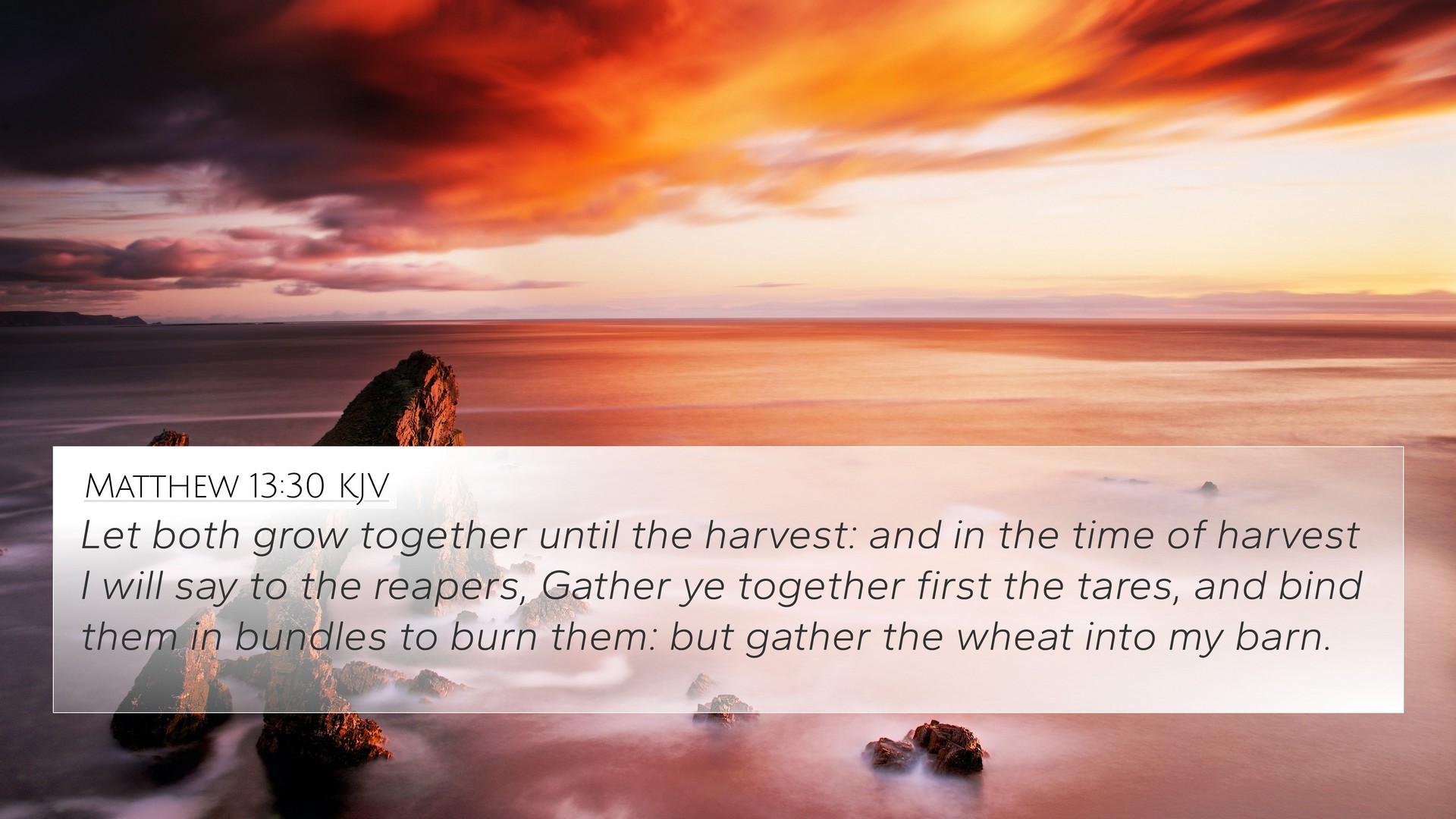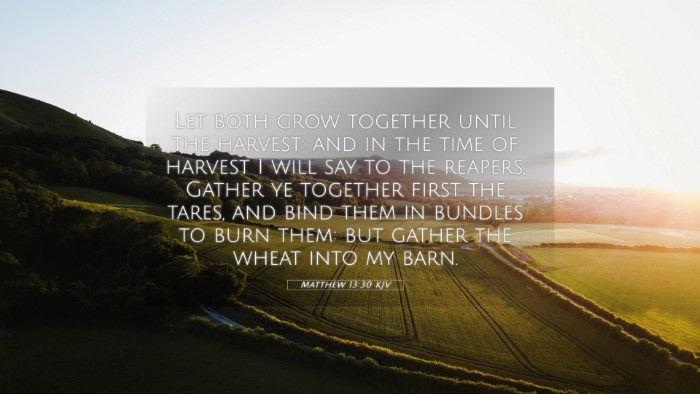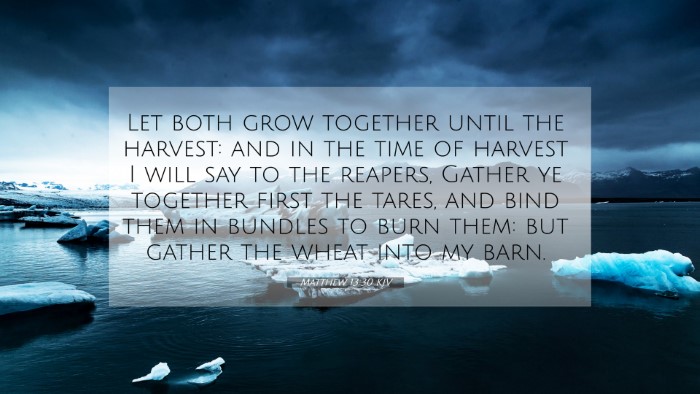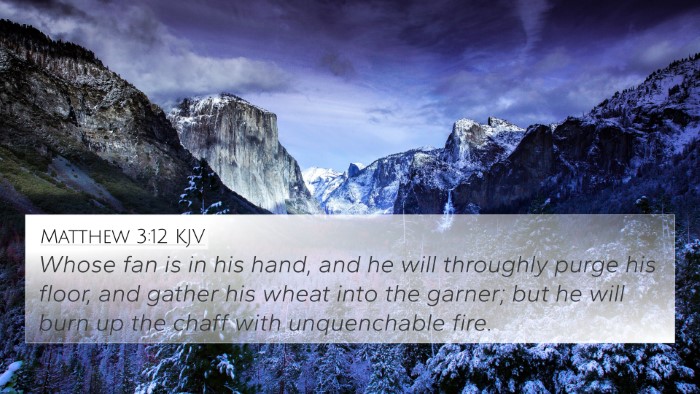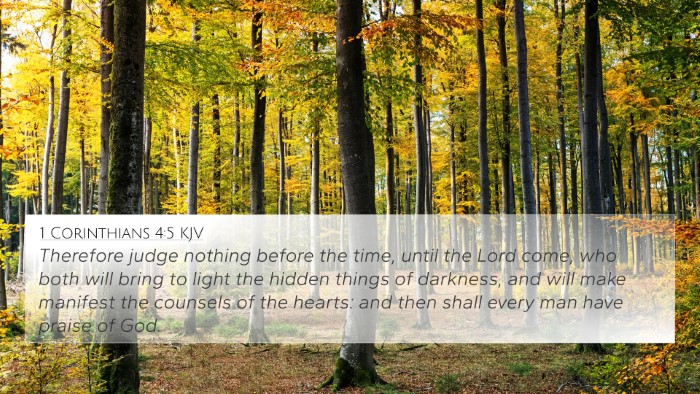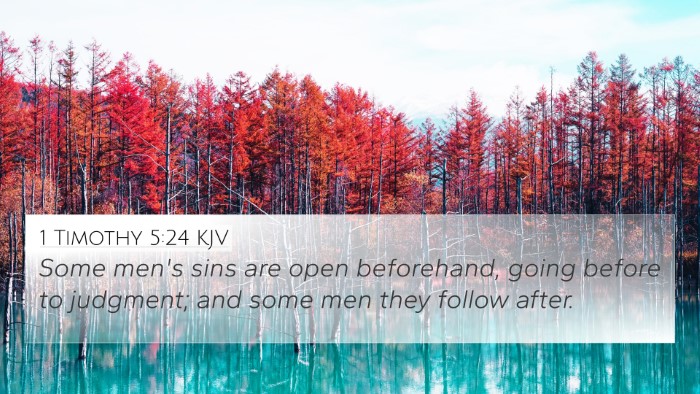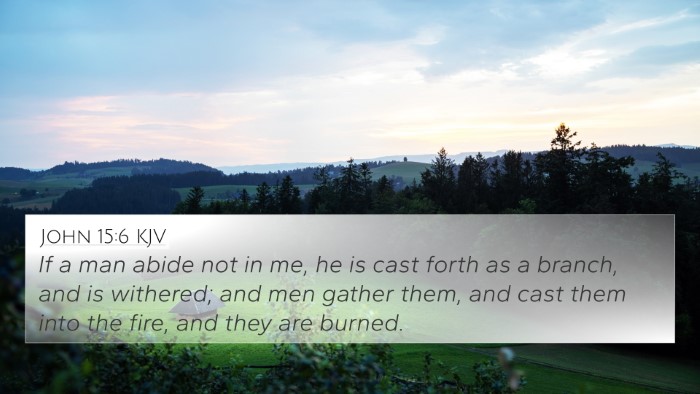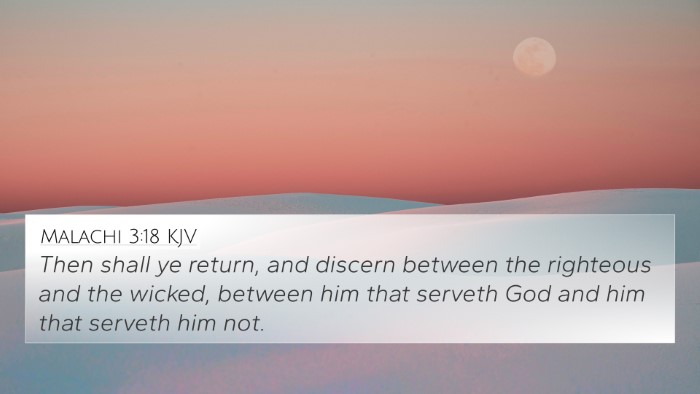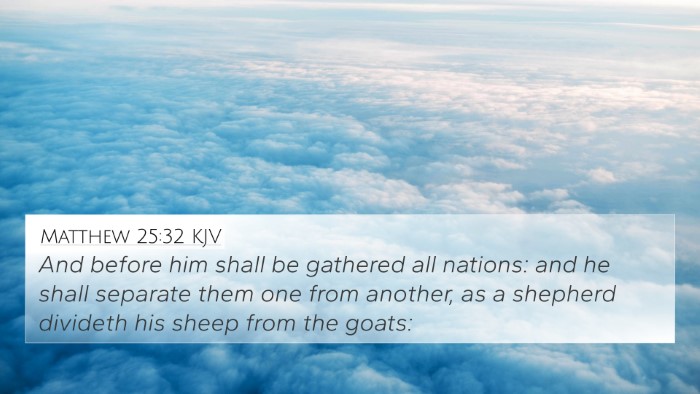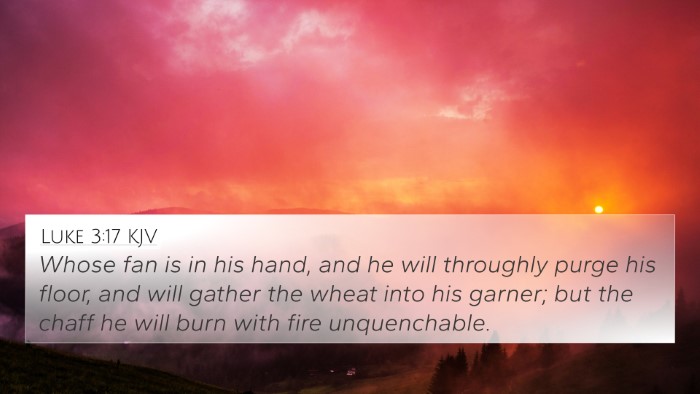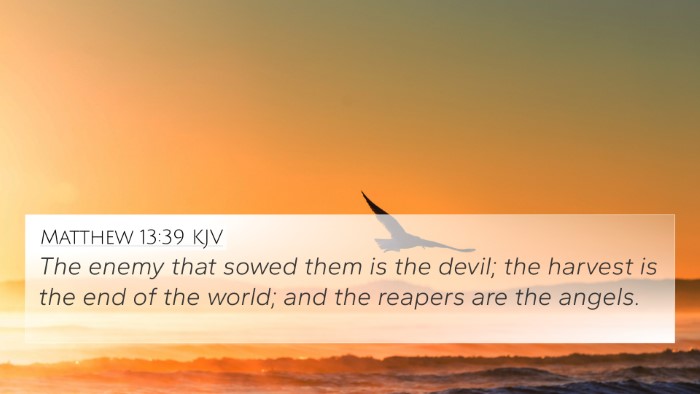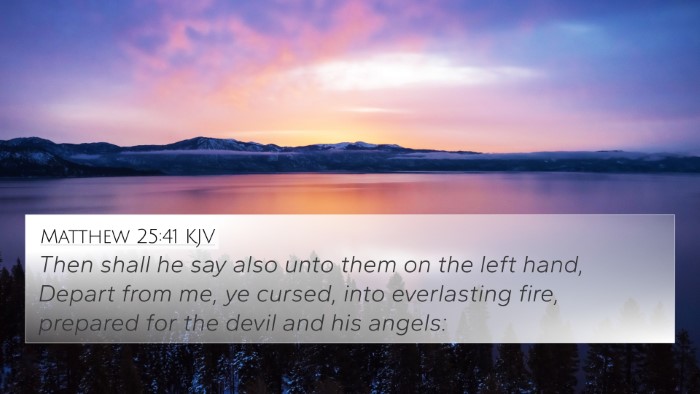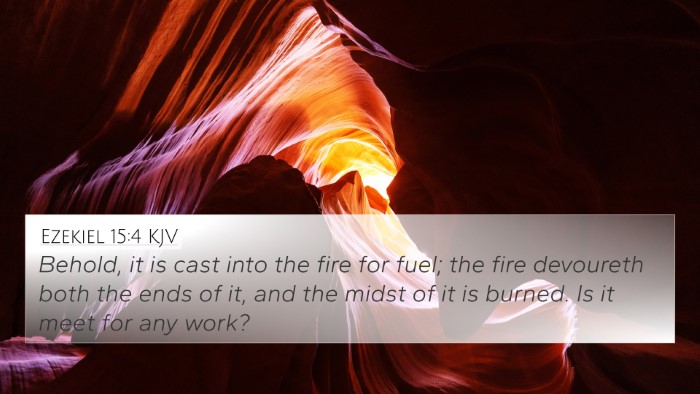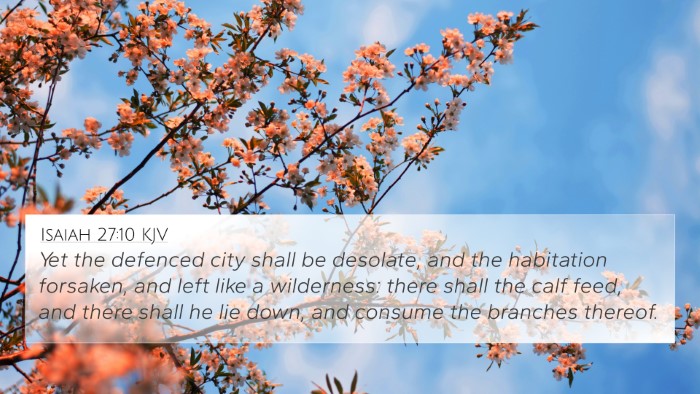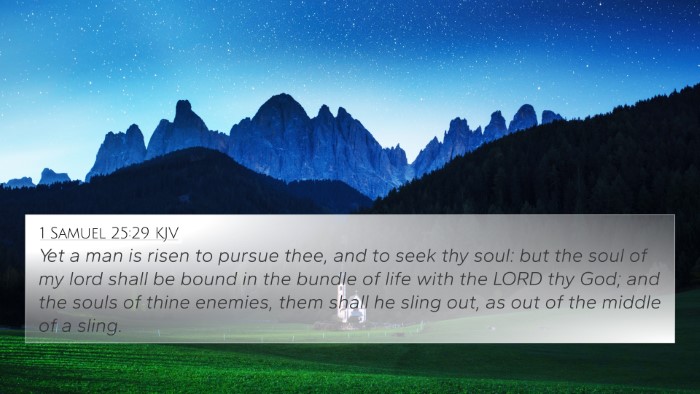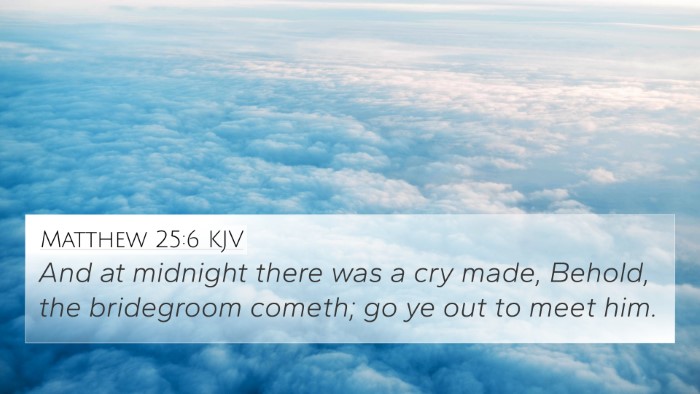Understanding Matthew 13:30
Bible Verse: Matthew 13:30 - "Let both grow together until the harvest: and in the time of harvest I will say to the reapers, Gather ye together first the tares, and bind them in bundles to burn them: but gather the wheat into my barn."
Summary of Meaning
The verse Matthew 13:30 offers a profound insight into the coexistence of good and evil within the world, symbolized by wheat and tares. This passage, part of the Parable of the Wheat and Tares, emphasizes God's patience and the ultimate separation of the righteous from the wicked at the time of divine judgment. Each element within the verse serves a specific purpose and illustrates significant theological themes, which can be elaborated upon through the insights of public domain commentaries.
Insights from Commentaries
-
Matthew Henry: In his examination, Henry notes that the tares represent false believers or hypocrites who appear among the true believers. His commentary emphasizes that humans often cannot discern the true nature of individuals, and thus, it is left to God to make the final judgment at the end of the age. Instead of attempting to uproot the tares prematurely, believers are encouraged to coexist and wait for the harvest.
-
Albert Barnes: Barnes elaborates on the significance of the harvest, likening it to the day of judgment. He interprets the act of gathering the wheat into barns as the gathering of the righteous into eternal life, while the tares being burned signifies the destruction of the wicked. Barnes also stresses God's grace in allowing both to grow together, providing time for repentance and transformation.
-
Adam Clarke: Clarke offers a theological perspective that highlights the mercy of God in allowing both the wheat and the tares to grow together until the harvest. He posits that this coexistence serves a greater purpose and speaks to the complexities of faith and moral discernment in an imperfect world. The ultimate separation reinforces God's justice and serves as a powerful reminder of the consequences of one’s choices.
Bible Verse Cross-References
To enrich the understanding of Matthew 13:30, we can cross-reference this verse with several others that explore similar themes:
- Galatians 6:7: “Be not deceived; God is not mocked: for whatsoever a man soweth, that shall he also reap.”
- Matthew 25:31-33: Describes the separation of the sheep from the goats, reinforcing the idea of divine judgment.
- Revelation 14:15: “...Thrust in your sickle, and reap: for the time is come for thee to reap; for the harvest of the earth is ripe.”
- 2 Corinthians 5:10: “For we must all appear before the judgment seat of Christ; that every one may receive the things done in his body, according to that he hath done, whether it be good or bad.”
- John 15:6: “If a man abide not in me, he is cast forth as a branch, and is withered; and men gather them, and cast them into the fire, and they are burned.”
- Job 34:30: “That the hypocrite reign not, lest the people be ensnared.”
- Matthew 7:22-23: “Many will say to me in that day, Lord, Lord, have we not prophesied in thy name? And in thy name have cast out devils? And in thy name done many wonderful works? And then will I profess unto them, I never knew you: depart from me, ye that work iniquity.”
Connections Between Bible Verses
There are various themes connecting these verses to Matthew 13:30:
- The theme of judgment and separation is prevalent across these scriptures, reinforcing the concept of accountability before God.
- There is a focus on the consequences of one’s actions, as highlighted in Galatians 6:7.
- The tension between appearance and reality in faith, as seen in Job 34:30 and Matthew 7:22-23, parallels the tares’ disguise among the wheat.
- God’s mercy and patience is emphasized throughout, as He allows the wheat and tares to grow together, providing opportunities for growth and repentance.
- Collectively, these scriptures underscore the importance of discernment in the Christian walk and foster a deeper understanding of God's kingdom.
Thematic Bible Verse Connections
Matthew 13:30 not only communicates the immediate context of the parable but connects to broader biblical themes such as:
- The Nature of Evil: Explores the existence of evil and unrighteousness cohabiting with good.
- Divine Justice: Reinforces the promise of divine justice and the ultimate accountability of all individuals.
- Mercy and Patience: Highlights God's mercy as He allows both the righteous and the wicked to exist with the hope of redemption.
Conclusion
Matthew 13:30 serves as a powerful reminder of the complexities of faith, the coexistence of good and evil, and the ultimate hope of redemption that comes through divine judgment. By examining this verse through the lenses of public domain commentaries and cross-referencing related scripture, one can gain a more profound understanding of its implications and teachings.
